"Dario Fo" A Jongleur for this World
Dario Fo’s – Drawings and Paintings
“Nothing gets down deeply into the mind and intelligence as satire”
The words of Dario Fo the brilliant Italian playwright and the 1997 Nobel Prize winner for Literature. A satirist, playwright, theatre director, actor, and composer and in 1997, he received the Nobel Prize for Literature. Dario Fo was ranked joint Seventh with Stephen Hawking in The Telegraph’s list of 100 greatest living geniuses in 2007. This clearly shows how highly regarded this playright is held.
Fo’s dramatic work employs comedic methods taken from the ancient Italian commedia dell’arte, a theatrical style popular with the proletarian classes and with his actress wife Franca Rame, he currently owns and operates a theatre company, amongst his many other artistic interests such as his paintings shown in the video.
“Know how to live the time that is given you”
Dario Fo
I first made contact with a Dario Fo play, when I went to see his play “The Death of an Anarchist” which was playing to packed audiences at the Aldwych Theatre London. I never laughed so much in my life and left the theatre more aware of political skulduggery than when I went in.
I must confess that living in England at the time I had never met or heard of anyone sharing the same name Dario. So a youthful combination of vanity, curiosity, and genuine interest in literature and the theatre, led me to the portals of this Italian Dario’s, original and undeniable talent. Fo’s side-splitting wit, biting social commentaries and rapier-like observations of our political and financial masters, made a lasting impression on me, and in him I felt as many others do, who value liberty, responsible and educational freedom of expression, that at last I had found a soul mate.
As I wrote previously, his dramatic work employs comedic methods of the ancient Italian commedia dell’arte, a theatrical style popular with the proletarian classes. Father of the writer Jacopo Fo, he currently owns and operates a theatre company with his wife, the leading actress Franca Rame. Dario Fo was awarded the 1997 Nobel Prize in Literature, with the committee highlighting him as a writer “who emulates the jesters of the Middle Ages in scourging authority and upholding the dignity of the downtrodden
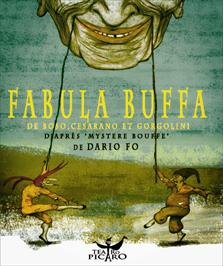 I am therefore surprised to read in various publications, that in the USA, the land of freedom of expression, that his works are rarely played and not many people in the Media have even heard of him or his works and I understand that a newspaper published a scathing attack on him, stating that as far as the United States forces of corporate capitalism are concerned, Fo is an unwelcome ogre.
I am therefore surprised to read in various publications, that in the USA, the land of freedom of expression, that his works are rarely played and not many people in the Media have even heard of him or his works and I understand that a newspaper published a scathing attack on him, stating that as far as the United States forces of corporate capitalism are concerned, Fo is an unwelcome ogre.
I also became aware that although loved by the mass of the people in his own country Italy, this wandering Jester I learned, has upset the Vatican for sharply satirizing the church notably in one of his most famous plays “Comic Mystery,” and for many years the Italian government even banned his works from state broadcasting channels which I found incredible and it appears that he was also prosecuted on several occasions for defaming the Police, the authorities and other offences.
I soon discovered that as an artist, I was personally sharing some of the social observations of the more talented Dario Fo. I have a personal belief, that if art is to mean anything, and to be truly liberated, it has to be used, as well as decorative visual delights and entertainment, to responsibly highlight social situations and political events, that have an effect on the lives of people, and in my opinion for an artist, it is almost a moral duty, to use ones skills to point out injustices in our society that one is aware of. We can be compared to and are the barometers of our own values and the social values around, and by our work we are also recording history of the times that we live.
When I first read the plays of Dario Fo, I was excited and re-awakened by his work. It was original, fresh, daring, impetuous, intellectually sharp as a razor and unafraid of the consequences of speaking out about the organized social conditioning, that influences and directs our daily lives. I was therefore delighted to hear the announcement that Dario Fo had been awarded the Nobel Laureate for Literature. He became the sixth Italian writer to be awarded this prestigious award, joining the illustrious ranks of Carducci 1906 and Luigi Pirandello 1934.
According to a press release from the Swedish Academy it stated “With a blend of laughter and gravity, Fo opens our eyes to abuses and injustices in society, and also to the wider historical perspective in which they can be placed.”
In true Dario Fo style, he gave half the prize to his wife Franca Rame and used the prize money to help prisoners jailed in Italy for political offences.
Fo’s works have been translated to 30 languages and when they are performed outside Italy, they are often altered to reflect local political and other issues and his plays often depend on improvisation, commedia dell’arte style. Fo encourages directors and translators to modify his plays as they see fit, in accordance with the commedia dell’arte tradition of the on-stage improvisation he is so fond of.
Much of his works are characterized by criticisms of organized crime, political corruption, political murders, conflict in the Middle East and issues of the Catholic church
To you Dario Fo the 21st Century Jongleur and the inheritor of a long and noble tradition of satirical humour, I applaud you, and your vibrant restless spirit. May you continue to open our closed eyes and inspire us to poke fun at human vanity, greed and self interest, and those who believe that by money and military power, they can manipulate, and control, materially and spiritually, the hearts and minds of mankind.
I can recommend that you read His plays “The Death of an Anarchist” “Can’t Pay, Won’t Play” “Archangels don’t play Pinball.” “Mistero Buffo.” “Trumpets and Raspberries” and “Adult orgasm escapes from the Zoo”
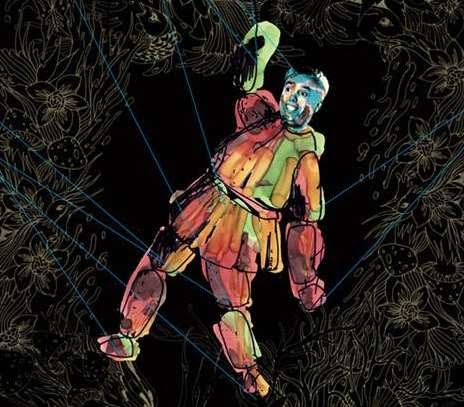 “Real socialism is inside man. It wasn’t born with Marx. It was in the communes of Italy in the Middle Ages. You can’t say it is finished”. Dario Fo.
“Real socialism is inside man. It wasn’t born with Marx. It was in the communes of Italy in the Middle Ages. You can’t say it is finished”. Dario Fo.
“It is hard for power to enjoy or incorporate humour and satire in its system of control”.
Dario Fo
He was always deeply involved in political issues that affected the people and in 1989 he wrote Lettera dalla Cina in protest at the Tiananmen Square Massacre, and in 1981 Fo received a Sonning Prize from Copenhagen University, 1985 a Premio Eduardo Award and in 1986 the Obie Award in New York and in 1987 Agro Dolce Prize.
“Making people ignorant has become an art, a science. Journalism is the science of not informing people.” Dario Fo.
On July 17, 1995, Fo suffered a stroke and lost most of his sight; Rame subsequently took his place in productions for a period of time. Fo recovered almost fully within a year. On October 9, 1997 he was announced as that year’s Nobel Prize in Literature laureate. He also received an honorary doctorate from the Vrije Universiteit Brussel (Belgium).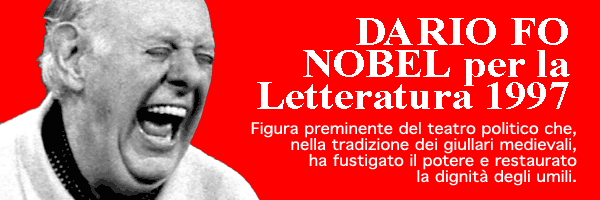 Here is a tiny biography of this great man origins, for those who may be interested in learning a little more. Fo was born in Sangiano, in the province of Varese, near the eastern shore of Lago Maggiore. His father Felice was a station master for the Italian state railway and was also an amateur actor and in politics a socialist. Dario Fo learned storytelling from his maternal grandfather and Lombard fishers and glass-blowers who lived around this region. – Dario Poli
Here is a tiny biography of this great man origins, for those who may be interested in learning a little more. Fo was born in Sangiano, in the province of Varese, near the eastern shore of Lago Maggiore. His father Felice was a station master for the Italian state railway and was also an amateur actor and in politics a socialist. Dario Fo learned storytelling from his maternal grandfather and Lombard fishers and glass-blowers who lived around this region. – Dario Poli
Some Dario Fo Quotations
“Comedy makes the subversion of the existing state of affairs possible”.
Dario Fo
“Although, this is often used with negative connotations, I see ideology as an inherent part of culture”
Dario Fo
“Even before Europe was united in an economic level or was conceived at the level of economic interests and trade, it was culture that united all the countries of Europe. The arts, literature, music are the connecting link of Europe”.
Dario Fo
“Every artistic expression is either influenced by or adds something to politics”.
Dario Fo
“It is extremely dangerous to talk about limits or borders. It is vital, instead, that we remain completely open, that we are always involved, and that we aim to contribute personally in social events”.
Dario Fo
“Our homeland is the whole world. Our law is liberty. We have but one thought, revolution in our hearts”. Dario Fo
“When I was a boy, unconsciously, spontaneously I learned the art of telling ironic stories”.
Dario Fo
“With comedy I can search for the profound”.
Dario Fo
Disclaimer: The views, opinions and positions expressed within this guest article are those of the author Dario Poli alone and do not represent those of the Marbella Marbella website. The accuracy, completeness and validity of any statements made within this article are not guaranteed. We accept no liability for any errors, omissions or representations. The copyright of this content belongs to Dario Poli and any liability with regards to infringement of intellectual property rights remains with the author.

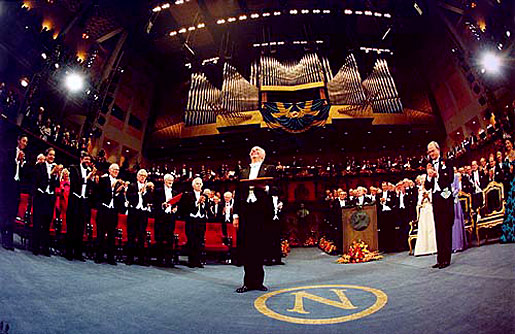
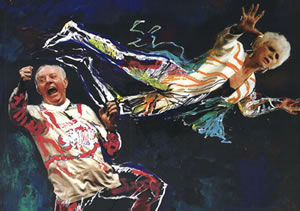

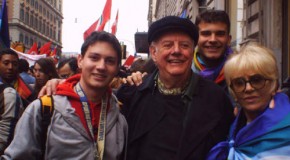
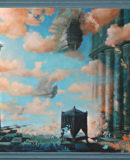






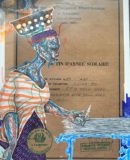



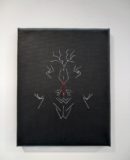
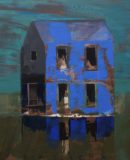

The opinions expressed by individual commentators and contributors do not necessarily constitute this website's position on the particular topic.